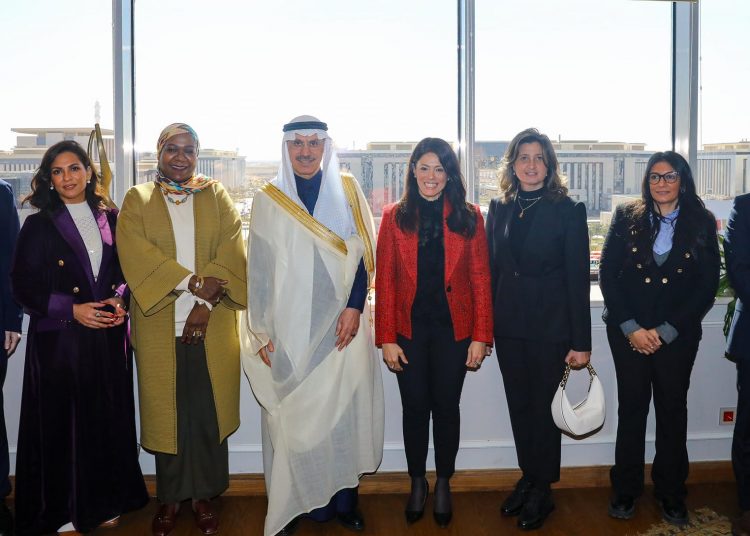She added that the projects cover the domains of electricity, energy, agriculture, irrigation, education, health, industry, mining, information and communications, with total funding amounting to about 21 billion dollars, with 332 projects completed and 50 projects are still underway.
The minister made the remarks during a meeting with IsDB Group Chairman Muhammad Sulaiman Al Jasser, at the headquarters of the Ministry of International Cooperation in the New Administrative Capital (NAC).
Mashaat stressing the Ministry of International Cooperation’s keenness to increase joint cooperation programs with the bank in the coming period, in light of the ambitious development plan implemented by the Government of Egypt, to accelerate sustainable development, in accordance with the SDGs.
She highlighted a number of cooperation activities with the IsDB, such as transportation projects, and many other projects, saying that the Bank’s support for the private sector will be published through the Private Sector Portal: Hub for Advisory, Finance & Investment For Enterprises, which seeks to introduce various forms of support from partners to the private sector.
Mashaat emphasized the importance of cooperation with the IsDB in implementing many projects that have an environmental impact, within the framework of combating climate change.
The minister shed light on IsDB’s interest in contributing to financing some of the NWFE program projects, such as the two projects, “Modernizing Irrigation Systems in Old Agricultural Lands,” to reduce water waste, increase crop productivity, and provide water to reclaim more land, and the “Water Desalination Using Solar Energy,” which aims to launch 5 solar-powered water desalination plants in 4 governorates with a total capacity of 525 thousand cubic meters per day, rising to 1.75 million cubic meters per day by 2050.
The project aims to provide clean water, and also promotes the green transformation; thus implementing the NDCs and Egypt’s Vision 2030. This is in addition to the project to “Enhancing Resilience in Vulnerable Areas”, which aims to increase the resilience of climate-vulnerable areas through specific interventions aimed at improving farmers’ livelihoods, in desert and remote areas such as (Oases, Al-Mughra, Sinai, and the south-eastern part of Egypt.
In this regard, Al-Mashat stressed that coordination is underway during the coming period to hold meetings with development partners that have expressed interest in financing NWFE program projects to agree on the next steps for the projects and begin their implementation.
Mashat also discussed with the IsDB the framework document for the strategic partnership that was signed between the Egyptian government and the Bank, which aims to harmonize the strategic plans of the Egyptian government and its development priorities in accordance with the 2030 sustainable development strategy of the Arab Republic of Egypt, as well as with the strategic directions for the Bank.
For his part, the President of the IsDB Al Jasser pointed to the growing partnership between the Bank and Egypt, stressing the Bank’s interest in participating in financing priority projects for the Egyptian government, in addition to crystallizing the cooperation that the Bank supports between Egypt and African countries within the Bank’s initiative to exchange knowledge and expertise and South-South Cooperation to benefit from Egypt’s expertise in various sectors.
The IsDB was established as an international financial institution in accordance with the founding agreement concluded in August 1974 in Jeddah, Saudi Arabia.
The Bank Group consists of five entities: the Islamic Development Bank, the Islamic Research and Training Institute, the Islamic Corporation for the Development of the Private Sector, the Islamic Corporation for the Insurance of Investment and Export Credit, and the International Islamic Trade Finance Corporation, and the International Waqf Authority recently joined.






Discussion about this post